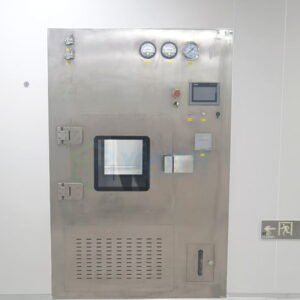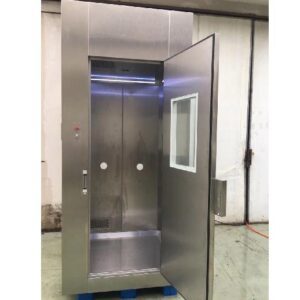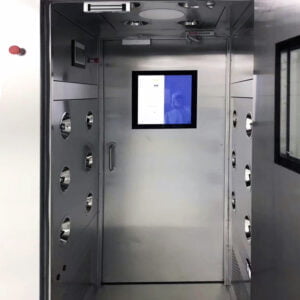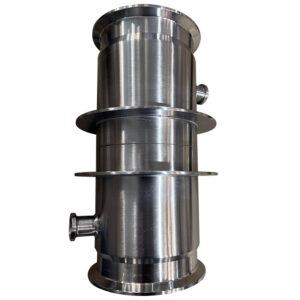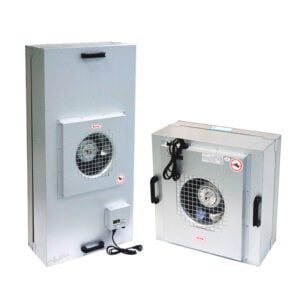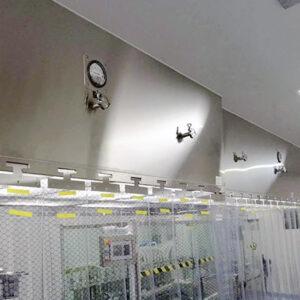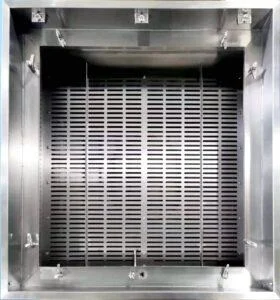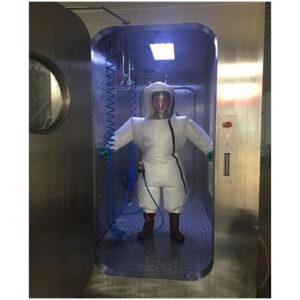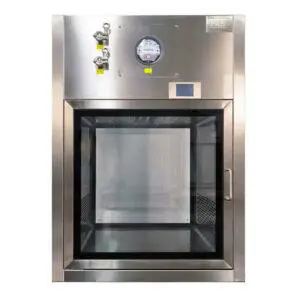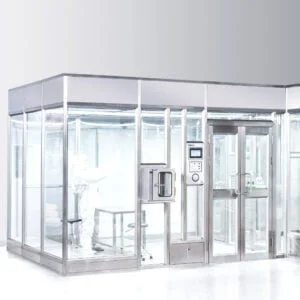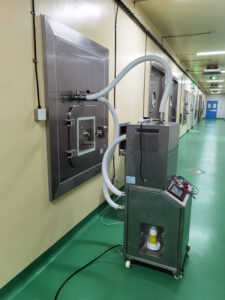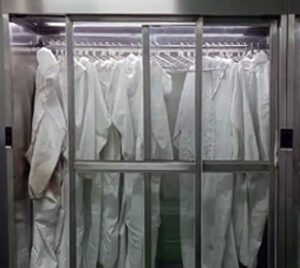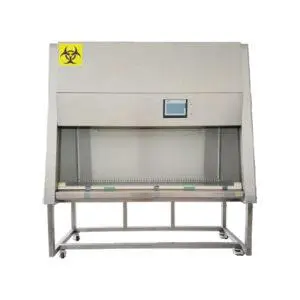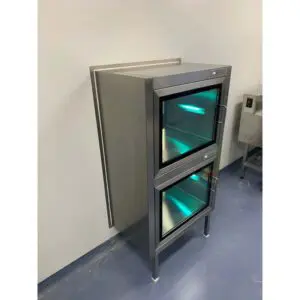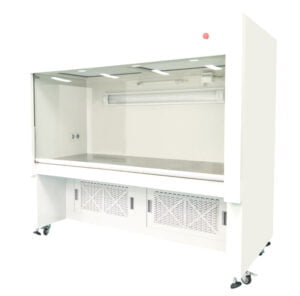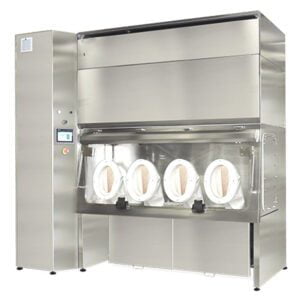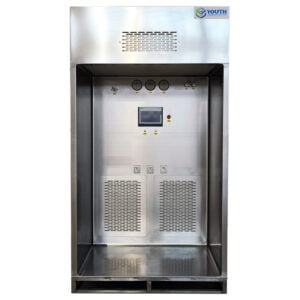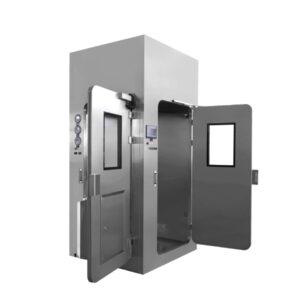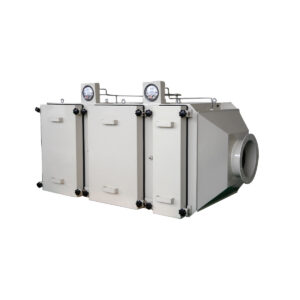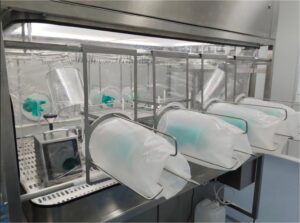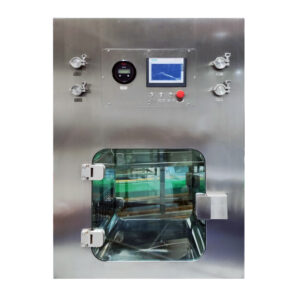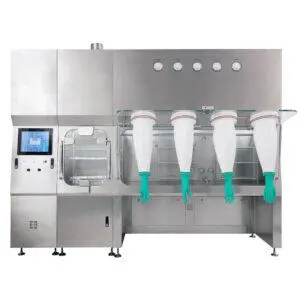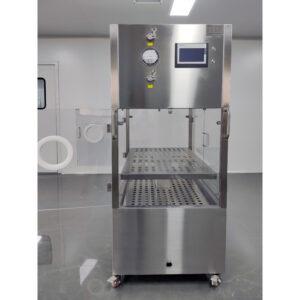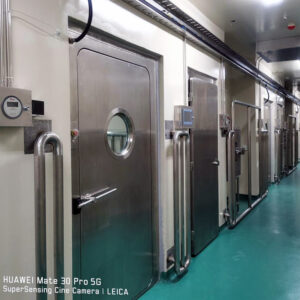In the world of cleanroom technology and contamination control, Bag-In Bag-Out (BIBO) systems play a crucial role in maintaining sterile environments. As these systems become increasingly prevalent in pharmaceutical, biotechnology, and healthcare industries, the demand for skilled BIBO system operators continues to grow. This article delves into the training requirements for BIBO system operators, exploring the essential skills, knowledge, and best practices necessary for safe and efficient operation.
The training of BIBO system operators is a complex and multifaceted process, encompassing various aspects of cleanroom technology, safety protocols, and operational procedures. From understanding the fundamental principles of BIBO systems to mastering advanced troubleshooting techniques, operators must undergo comprehensive training to ensure the integrity of controlled environments. This article will examine the key components of BIBO system operator training, including theoretical knowledge, practical skills, and ongoing professional development.
As we transition into the main content of this article, it's important to recognize the critical role that properly trained BIBO system operators play in maintaining the safety and efficiency of cleanroom environments. Their expertise directly impacts the quality of products and the safety of personnel working in these controlled spaces. Let's explore the essential training requirements and best practices that shape competent BIBO system operators.
Comprehensive training for BIBO system operators is paramount to ensure the safety, efficiency, and integrity of cleanroom environments across various industries.
| Training Component | Description | Importance |
|---|---|---|
| Theoretical Knowledge | Understanding of BIBO system principles and cleanroom technology | High |
| Practical Skills | Hands-on experience with BIBO system operation and maintenance | Critical |
| Safety Protocols | Knowledge of safety procedures and risk mitigation strategies | Essential |
| Regulatory Compliance | Familiarity with industry standards and regulations | Mandatory |
| Troubleshooting | Ability to identify and resolve system issues | Important |
| Documentation | Proficiency in maintaining accurate records and logs | Necessary |
| Continuous Learning | Commitment to ongoing professional development | Recommended |
What are the fundamental principles of BIBO systems that operators must understand?
The foundation of any BIBO system operator training program lies in understanding the fundamental principles of these sophisticated containment systems. Operators must grasp the core concepts of how BIBO systems function, their components, and their role in maintaining cleanroom integrity.
A comprehensive understanding of BIBO systems includes knowledge of their design, airflow patterns, filtration mechanisms, and the critical role they play in preventing contamination. Operators should be well-versed in the principles of positive and negative pressure, laminar flow, and particulate control.
Delving deeper, operators must comprehend the intricacies of the bag-in bag-out process, which is central to the BIBO system's functionality. This includes understanding how contaminated filters are safely removed and replaced without compromising the cleanroom environment. Knowledge of filter types, their efficiency ratings, and their specific applications is also crucial for effective system management.
BIBO system operators must possess a thorough understanding of containment principles, airflow dynamics, and filtration technologies to ensure optimal system performance and maintain cleanroom integrity.
| BIBO System Component | Function | Operator Knowledge Required |
|---|---|---|
| Housing | Contains filters and provides access | Design features and materials |
| Filters | Remove contaminants from air | Types, ratings, and replacement procedures |
| Bags | Enable safe filter changes | Proper handling and disposal techniques |
| Clamping Mechanisms | Secure bags during filter changes | Operation and maintenance |
| Pressure Gauges | Monitor system pressure | Reading and interpreting measurements |
How does safety training factor into BIBO system operation?
Safety training is a paramount aspect of BIBO system operator education. Given the potential hazards associated with handling contaminated filters and working in controlled environments, operators must be well-versed in safety protocols and risk mitigation strategies.
A comprehensive safety training program for BIBO system operators covers personal protective equipment (PPE) usage, proper handling of potentially hazardous materials, and emergency response procedures. Operators learn about the importance of maintaining a sterile environment and the consequences of breaches in containment.
In-depth safety training also includes instruction on proper ergonomics during filter changes, the safe disposal of contaminated materials, and the prevention of cross-contamination. Operators are taught to recognize potential hazards and implement preventive measures to ensure their safety and that of their colleagues.
Rigorous safety training is essential for BIBO system operators to protect themselves, their coworkers, and the integrity of the cleanroom environment from potential contamination and health risks.
| Safety Aspect | Training Focus | Importance |
|---|---|---|
| PPE Usage | Proper selection and wearing of protective gear | Critical |
| Contamination Control | Techniques to prevent spread of contaminants | High |
| Emergency Procedures | Response to spills, leaks, or system failures | Essential |
| Ergonomics | Safe body mechanics during filter changes | Important |
| Hazard Recognition | Identification of potential risks in the work area | Crucial |
What technical skills are required for effective BIBO system operation?
Effective BIBO system operation demands a robust set of technical skills that operators must acquire through comprehensive training. These skills encompass both the day-to-day operation of the system and the ability to perform routine maintenance and troubleshooting.
Operators must be proficient in monitoring system performance, interpreting pressure gauge readings, and adjusting airflow rates as needed. They should be skilled in performing regular inspections of the BIBO system components, including housings, gaskets, and clamping mechanisms, to ensure proper functionality.
Advanced technical training includes mastering the complexities of filter change procedures, which require precision and attention to detail. Operators learn to safely remove and replace filters without compromising the cleanroom environment, a process that demands both technical know-how and physical dexterity.
BIBO system operators must develop a comprehensive set of technical skills, ranging from system monitoring and maintenance to complex filter change procedures, to ensure optimal performance and longevity of the equipment.
| Technical Skill | Application | Training Method |
|---|---|---|
| System Monitoring | Daily checks and performance tracking | Hands-on practice and simulation |
| Filter Changes | Safe removal and replacement of filters | Step-by-step instruction and supervised practice |
| Maintenance | Routine upkeep of system components | Manufacturer guidelines and practical workshops |
| Troubleshooting | Identifying and resolving system issues | Case studies and problem-solving exercises |
| Documentation | Recording system data and maintenance logs | Template usage and record-keeping practice |
How does regulatory compliance factor into BIBO system operator training?
Regulatory compliance is a critical aspect of BIBO system operator training, given the strict standards governing cleanroom operations in various industries. Operators must be well-versed in relevant regulations, standards, and guidelines to ensure that their work meets or exceeds industry requirements.
Training in regulatory compliance typically covers key standards such as ISO 14644 for cleanrooms and associated controlled environments, as well as industry-specific regulations like FDA guidelines for pharmaceutical manufacturing. Operators learn about the importance of maintaining proper documentation, adhering to standard operating procedures (SOPs), and participating in regular audits.
Furthermore, compliance training emphasizes the role of operators in maintaining the validated state of the cleanroom environment. This includes understanding the impact of their actions on the overall cleanroom classification and the importance of following validated processes consistently.
Comprehensive training in regulatory compliance ensures that BIBO system operators understand and adhere to industry standards, contributing to the maintenance of a validated and compliant cleanroom environment.
| Regulatory Aspect | Training Focus | Relevance |
|---|---|---|
| ISO 14644 | Cleanroom classification and monitoring | High |
| FDA Regulations | Good Manufacturing Practices (GMP) | Critical for pharmaceutical applications |
| Documentation | Record-keeping and traceability | Essential for audits |
| Validation | Understanding and maintaining validated states | Crucial for regulatory compliance |
| Audit Preparation | Responding to inspections and audits | Important for ongoing compliance |
What role does continuous learning play in BIBO system operator development?
The field of cleanroom technology and BIBO systems is constantly evolving, with new technologies, regulations, and best practices emerging regularly. As such, continuous learning plays a vital role in the ongoing development of BIBO system operators.
Continuous learning programs for BIBO system operators may include regular refresher courses, attendance at industry conferences, and participation in webinars or workshops. These opportunities allow operators to stay abreast of the latest advancements in BIBO technology, updated regulatory requirements, and emerging best practices in cleanroom management.
Moreover, continuous learning fosters a culture of improvement and innovation among operators. It encourages them to seek out new knowledge, share experiences with peers, and contribute to the advancement of BIBO system operation techniques.
Embracing continuous learning is essential for BIBO system operators to maintain their expertise, adapt to industry changes, and contribute to the ongoing improvement of cleanroom practices.
| Learning Opportunity | Benefit | Frequency |
|---|---|---|
| Refresher Courses | Reinforcement of core skills | Annual |
| Industry Conferences | Exposure to new technologies and networking | 1-2 times per year |
| Webinars | Updates on specific topics | Monthly |
| Peer Knowledge Sharing | Exchange of practical experiences | Ongoing |
| Manufacturer Training | Updates on specific equipment | As needed |
How is practical experience integrated into BIBO system operator training?
While theoretical knowledge forms the foundation of BIBO system operator training, practical experience is crucial for developing competent and confident operators. Integrating hands-on training into the learning process allows operators to apply their knowledge in real-world scenarios and develop the muscle memory necessary for efficient system operation.
Practical training often begins with simulated exercises in a controlled environment, where operators can practice filter changes, system monitoring, and troubleshooting without the pressure of a live cleanroom setting. As their skills progress, trainees move on to supervised practice in actual cleanroom environments, gradually taking on more responsibility under the guidance of experienced mentors.
The practical component of training also includes exposure to various scenarios that operators might encounter, such as emergency shutdowns, contamination events, or equipment malfunctions. This prepares them to respond effectively to challenges in their day-to-day work.
Integrating practical experience into BIBO system operator training is essential for developing the hands-on skills, confidence, and problem-solving abilities necessary for effective system management.
| Practical Training Element | Purpose | Duration |
|---|---|---|
| Simulated Exercises | Safe practice of core skills | 1-2 weeks |
| Supervised Cleanroom Practice | Application of skills in real environment | 2-4 weeks |
| Emergency Response Drills | Preparation for potential incidents | Ongoing |
| Mentorship Programs | Guidance from experienced operators | 3-6 months |
| Performance Assessments | Evaluation of practical skills | Quarterly |
What are the key performance indicators for BIBO system operators?
Assessing the competency and effectiveness of BIBO system operators is crucial for maintaining high standards of cleanroom operation. Key performance indicators (KPIs) provide a framework for evaluating operator performance and identifying areas for improvement.
KPIs for BIBO system operators typically include metrics such as the frequency of successful filter changes, adherence to safety protocols, accuracy of system monitoring and documentation, and the ability to identify and resolve issues promptly. These indicators help managers assess both the technical proficiency and the operational diligence of their operators.
Performance evaluation also considers softer skills, such as communication effectiveness, teamwork, and problem-solving abilities. These qualities are essential for maintaining a smooth and efficient cleanroom operation, especially in high-pressure situations or during collaborative tasks.
Establishing and monitoring key performance indicators for BIBO system operators ensures consistent high-quality performance and identifies areas for targeted training and improvement.
| Key Performance Indicator | Measurement Method | Target |
|---|---|---|
| Filter Change Success Rate | Percentage of changes without incidents | >99% |
| Safety Protocol Adherence | Compliance audits | 100% |
| Documentation Accuracy | Regular record reviews | >98% |
| Issue Resolution Time | Average time to resolve system problems | <2 hours |
| Continuous Learning Participation | Hours of additional training completed | >20 hours/year |
In conclusion, the training requirements for BIBO system operators are comprehensive and multifaceted, reflecting the critical role these professionals play in maintaining cleanroom integrity and safety. From mastering the fundamental principles of BIBO systems to developing advanced technical skills and staying abreast of regulatory requirements, operators must undergo rigorous and ongoing training to excel in their roles.
The importance of practical experience, safety awareness, and continuous learning cannot be overstated in the development of competent BIBO system operators. By integrating these elements into a robust training program, organizations can ensure that their operators are well-equipped to handle the challenges of cleanroom management and contribute to the overall success of their operations.
As cleanroom technology continues to advance, the role of BIBO system operators will undoubtedly evolve. By maintaining a commitment to comprehensive training and professional development, these crucial team members will remain at the forefront of contamination control, safeguarding the quality and integrity of products across various industries.
For those interested in learning more about BIBO systems and their applications in cleanroom environments, [ (YOUTH)[youthfilter.com] ] offers a range of resources and products. Their Bag-In Bag-Out (BIBO) systems page provides valuable information on state-of-the-art containment solutions for various industries.
External Resources 1. [Vietnam Cleanroom - BIBO Bag In Bag Out system and its working principle](https://vietnamcleanroom.com/en/post/bibo-bag-in-bag-out-system-and-its-working-principle-813.htm) - This article explains the working principle and structure of the BIBO system, which is essential for understanding the operational requirements. 2. [Cleanroom Technology - Cleanroom Training and Certification](https://www.cleanroomtechnology.com/training-and-certification) - While not specifically focused on BIBO systems, this resource provides general information on cleanroom training and certification, which could be relevant for operators working with BIBO systems. 3. [ISO 14644 - Cleanrooms and associated controlled environments](https://www.iso.org/standard/50821.html) - This ISO standard provides guidelines for cleanrooms, including those where BIBO systems are used. Understanding these standards is crucial for operator training. 4. [Occupational Safety and Health Administration (OSHA) - Cleanroom Safety](https://www.osha.gov/cleanroom-safety) - OSHA guidelines on cleanroom safety can include information on training requirements for operators working in environments where BIBO systems are used. 5. [National Institute for Occupational Safety and Health (NIOSH) - Cleanroom Safety and Health Topics](https://www.cdc.gov/niosh/topics/cleanrooms/default.html) - NIOSH provides detailed information on safety and health topics related to cleanrooms, which can be useful for training BIBO system operators. 6. [Clean Air and Containment Review (CACR) - Training for Cleanroom Personnel](https://www.cacr.org.uk/training-for-cleanroom-personnel/) - This resource offers insights into training programs for cleanroom personnel, which can be adapted for BIBO system operators. 7. [International Society for Pharmaceutical Engineering (ISPE) - Cleanroom Training](https://ispe.org/training/cleanroom-training) - ISPE provides training resources for cleanroom operations, including best practices that could be applied to BIBO system operation. 8. [Pharmaceutical Online - Cleanroom Operator Training](https://www.pharmaceuticalonline.com/doc/cleanroom-operator-training-0001) - This article discusses the importance of training for cleanroom operators, which includes aspects relevant to BIBO system operation. Related Contents:
- Bag-In/Bag-Out (BIBO) Systems: Operation and Maintenance Guide
- Unveiling the Power of Bag-In-Bag-Out Systems
- Safeguarding Sterility: BIBO Systems in Cross-Contamination Prevention
- Troubleshooting BIBO Filter Housing Issues: A Comprehensive Guide
- The Intricate World of BIBO Filter Housing
- Evaluating BIBO Systems’ Efficiency in Particle Removal
- The Cost-Effectiveness of BIBO Systems in Industrial Applications
- Safeguarding Health: The Role of BIBO Systems in Workplace Safety
- Maintaining BIBO Filter Housings: Best Practices for Optimal Performance


